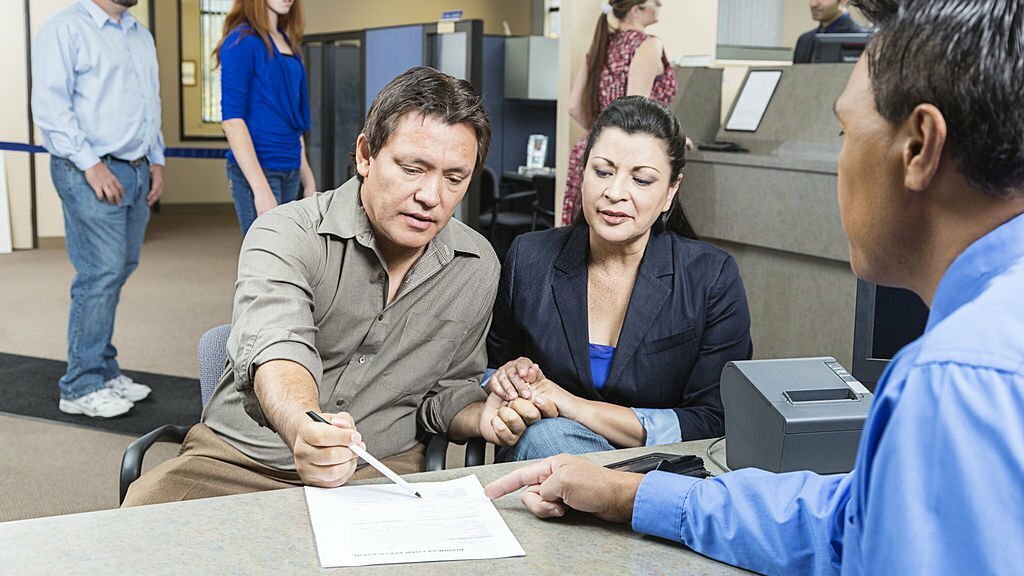Are you searching about how to become a Florida resident without living there? Well, that’s not possible! You must stay in Florida for at least 183 days to apply for a Residential Status.
Florida is great with natural environments, lakes, milder weather conditions, etc. As a result, most people try to settle down in this beautiful state. In addition, it has many job markets to appeal to many young professionals to come and work efficiently. Therefore, you will find some best places to live in Florida for families and young professionals.
Income tax benefits are the most significant advantage of staying in this Sunshine State with your family. Yes, you read it correctly! You will get the freedom from paying income tax, which can boost your savings. All these reasons are enough to spend your life in a peaceful environment like Florida. So, continue your reading to know more about it!

Can I be a resident of two states?
Yes! Undoubtedly a person can hold two states’ residential status simultaneously. However, having two different residencies is pretty rare. A person who leaves his home country to work in another country can apply for the two states’ residency.
Also, a person having a domicile in the home country but having been living in another country for a specific reason for over 184 days can apply for a residency. This way, the person can simultaneously hold two residences and a single domicile.
How long does it take to become a resident of Florida?
In the case of Florida, it has everything a person wants, including the best retirement communities in Florida in most cities. However, becoming a resident in Florida involves a 183-days rule for its residency. For example, if you want a residential status in Florida, you must live there for at least 183-days.
To get eligible for residential status in Florida, you must legally live in Florida for more than a half year. However, being a Florida resident is a bit different, and you must follow certain conditions. So, let’s see them below.
[elementor-template id=”13247″]
How To Officialy Become a Florida Resident
A person living in Florida for many years needs to follow only a few steps to get a residential status in Florida. But if you reside in two different states, the process can be a bit challenging. You have to be present at their for verification to become a Florida resident.
Furthermore, if you want to make it more seamless, we have another option for you. Try to get a job from an employer in Florida, which makes your process more straightforward. Isn’t that great?
Steps to Officially Becoming a Florida Resident
It is not as easy as flying to Florida to get a residential status. Completing a period of 183-days in Florida is essential to get the residency. Similarly, you must select a particular state to notify your choice by showing primary relationships with that state if you want to reside in Florida and one or more other states during the year.
1. Establishing Yourself as a Floridian
Follow the below steps to establish yourself as a Floridian.
- You must apply for a Declaration of Domicile showing your main residency. Plus, you must prove your primary residence in Florida.
- Take the approval of the Floridian Authorities. It will prove that you can live in Florida and that Florida is your permanent residency.
- Two things are needed to prove: Physical Appearance and Aim of Application.
Establishing the Floridian Residency is a seamless process. Therefore, you are safe from doing much documentation.
2. File a Declaration of Domicile
The Following documents are required here.
- You must provide your identity or driving license approved by the Department of Highway Safety and Motor Vehicles.
- You can share a passport approved by the Department of State of the United States.
This document will accept you as a Floridian Resident and allow you to keep a residence in Florida and make it your permanent home.

After this, the one thing remaining is signing your Declaration of Domicile. You will be called by the Notary Public or the Deputy Clerk of a Florida Court to sign it in front of them.
After that, it will be listed in the county of Florida you live in. Further, you can be punished with five years in the State Prison with a $5,000 fine in the case of falsely signing.
3. File for A Homestead Exemption
As we have mentioned earlier, tax benefits are the biggest reason to reside in Florida. Whether your home is situated in the small or biggest cities in Florida, you are eligible to get a tax exemption in property taxes by $250 per person. Similarly, you can apply for this after getting the Declaration of Domicile.
According to the “Save Our Home” act of Florida, after being eligible for the homestead exemption, you will get a property tax exemption for the first 50,000 dollars to the taxable amount for every taxable unit accepting the school (allowing 25,00 dollars). Besides that, your estimated value will not exceed 3% once you qualify for a particular year.
Despite that, filing for the homestead exemption can be an absolute answer to how to become a Florida resident for tax purposes. It can easily save you from paying huge taxes, which means you don’t have to pay.
4. Accept Employment
Taking the residential status of any state becomes more seamless when you have the employment opportunity in the state you want to reside. Also, this is the most common reason people change their residential status.
Employment opportunities from Floridian employers will add another value to your residing purpose. Your salary or wage slips from the Florida employer or an existing Florida resident will add a godsend to your process.
You can use employment opportunities in Florida as an aim to take residency. You can quickly deal with the issues of the Domicile Declaration when you get employment opportunities from the other states.
[elementor-template id=”13242″]
5. Enroll your child in a Florida school
Florida offers better education to your children. Therefore, you can get a residency in Florida by enrolling your kids in a Florida school. This also comes under the second purposeful option mentioned earlier in this article.

However, your child must be under 18, of course. Despite that, if you are a student, you have to think more about how to become a Florida resident as a student because the process becomes quite different. It will add another value to your residency purpose, making your process easy.
From the first day, students must stay in Florida for at least a year from the class commencement date. Also, the student has to submit the legal documents showing a Floridian bonafide domicile.
6. File Federal Taxes after becoming a Florida Resident
It is the most necessary work to get the Residential Status from Florida. The tax returns must be delivered to the Internal Revenue Service Center in Atlanta and Georgia after moving to Fl.
“Final Return” must be written in previous states to confirm that you have done with your taxes. After that, you can provide a new address to clarify your Floridian residency.
For example, suppose you are settled in Florida from Brazil. You must write the “Final Return” on it, including the current address in Florida.
Sometimes the year remains unchanged for the tax returns. In such situations, try to file part-year returns. But remember one thing! Every state has its own rules and regulations. Therefore, you have to choose your specific situation before assuming anything.
7. Register Your Vehicles in Florida
You have to complete the process of transferring your Florida driving license before registering your vehicles. It will also open the doors to declaring residency in Florida. After that, the Florida vehicle license must be transferred after taking residency in Florida. In the case of a non-driver, provide a state-issued ID.
After getting your driver’s license, register your vehicle with the Department of Motor Vehicles in Florida within ten days. Also, you must request the title transfer if your car possession is in the out-of-state landlord’s lien. Furthermore, you must take insurance for your vehicles in Florida within ten days of residency establishment.
8. Register and Vote in Florida
Registering yourself in Florida with a Florida driving license becomes more comfortable. However, you will need a home address in Florida to get eligible to register to vote. It is a key factor in voting in the local and national elections.
Similarly, you are allowed to register yourself with the Elections Supervisor. Further, you must register for voting at least 30 days or a month before the elections. The voter books close before a month or 30 days of elections and reopen after elections.
You must fill out the form that does not take much time and hand it to the concerned authorities. You can use an online portal to register to vote in Florida.
9. Open Local Bank Accounts in Florida
In the previous states, you have indeed opened a bank account. So, in the new state of Florida, look for the branch you want to open a bank account in. Similarly, if you are married, explore the advantages of “tenants by the entirety.”

The attorney of Florida Estate will help you with the exact information you need on that. So, contact them for further details. However, it will be beneficial to transfer all your accounts if your existing state is highly taxed. For example, you can transfer to a bank, church, gym, community groups, medical groups, affiliations, insurance approval, etc.
10. Notify the ATF of your move to Florida
Before you move to Florida, you must notify the Bureau of Alcohol, Tobacco, Firearms, and Explosives if you hold the No Firearms Act restricted items. It will keep some other processes more accessible.
Similarly, you must notify your magazine subscriptions, clubs, and other necessary parties about your move. Also, inform them individually of a new address in Florida and the Postal Service.
[elementor-template id=”13257″]
Other Residency Requirements
The following checklists involve the quick requirements to check before you enter Florida. Also, it includes a few other conditions that you can opt for.
- Get a Florida Residency based on personal income tax returns.
- File the residency undertaking notice to the circuit court’s clerk.
- Provide the notice of a new address in Florida to the Social Security Administration.
- Change your bank accounts with local banks in Florida
- Meet with the Floridian animal doctor and register your pets.
- Get your child’s admission to the Florida public schools.
- Change your religious affiliations with Florida.
- Get insurance plans in Florida.
- Get in touch with the attorney to change your estate planning documents according to Florida rules and laws.
- Transfer your business or occupation to Florida.
- Get employment under a Florida employer.

How to become a Florida Resident FAQs
How do I prove residency in Florida?
Florida residential status is entirely beneficial to get relaxed from the taxation. However, the following documents will prove your residency in Florida.
- Florida Driving License or ID Card
- Voter’s Registration in Florida
- Vehicle registration in Florida
Despite that, you can show proof of the home address in Florida you are living in. In addition, you can show permanent full-time employment in Florida as proof.
Can you get a Florida driver’s license without being a resident?
Yes, only if you are a non-immigrant. You are allowed to take permission to drive for four or fewer years. However, the acknowledgment of social security is a must. It will be based on your expiration date of existing immigration document proof.
Conclusion
Although the cost of living in Florida is higher than the US national average by a few percent, Florida can be the best option to live. The best winters, retired communities, job markets, theme parks, and other magical nature can appeal to you to reside in Florida.
However, if you don’t know how to become a Florida resident, we can help you there. We have steps to becoming a resident in Florida, including the intentions. Therefore, you will surely get the complete information from beginning to end in this article.
Lastly, we hope this article will prove helpful to you. Please don’t forget to share other updates if we miss them.
[elementor-template id=”13252″]